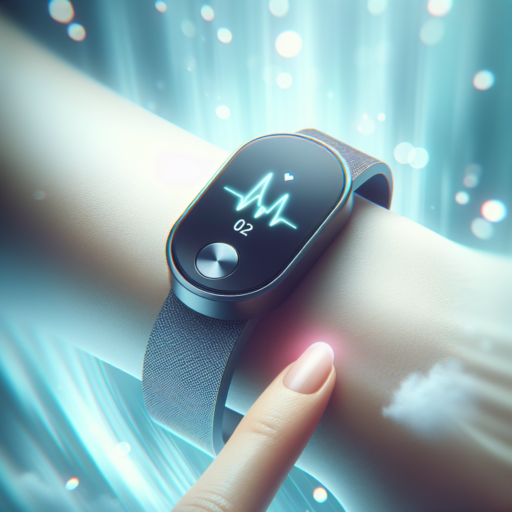Are heart rate bracelets accurate?
Heart rate bracelets, often a staple in the fitness tracking arsenal, have surged in popularity due to their convenience and innovative features. However, the question of their accuracy remains a subject of debate among experts and users alike. These devices, designed to continuously monitor heart rate, employ various technologies, with most relying on optical sensors to measure blood flow through the skin. While they offer a non-invasive way to gather heart rate data, several factors can influence their precision.
Factors Influencing Accuracy
The accuracy of heart rate bracelets can be affected by physical factors such as skin tone, wrist size, and the device’s position on the wrist. For instance, a loose fit may result in inaccurate readings by allowing light to enter the sensor area, distorting the signals. Moreover, motion artifacts—errors caused by movements—can significantly impact the data’s reliability, especially during high-intensity activities where arm movements are more erratic. Additionally, the inherent limitations of optical sensor technology, which may struggle to capture rapid heart rate changes accurately, can also play a role.
Comparative Studies and Expert Opinions
To address the concerns regarding their accuracy, heart rate bracelets have been the subject of numerous studies. These investigations typically compare the data collected by wearable devices to that of electrocardiogram (ECG) machines, considered the gold standard in heart rate monitoring. While some studies find that certain heart rate bracelets offer comparatively accurate readings, others note a variability in performance across different brands and models. Experts often highlight that while these devices provide beneficial insights into general trends in heart health and fitness levels, they may not always be sufficiently precise for medical monitoring or making health decisions based solely on their data.
What bracelet measures heart rate?
When it comes to monitoring heart rate, modern technology offers several wearable devices, but heart rate measuring bracelets stand out due to their convenience and efficiency. These bracelets, often referred to as heart rate monitors or fitness trackers, are designed to continuously track your heart’s rhythm and pulse rate. They have become a vital tool for anyone looking to monitor their heart health, improve their fitness levels, or even lose weight effectively.
Heart rate measuring bracelets work by using optical sensors to detect the blood volume variations in your wrist as your heart beats. These sensors emit light that penetrates the skin, allowing the device to monitor the changes in blood flow and thereby calculate your heart rate. This technology, known as photoplethysmography (PPG), is incredibly accurate for day-to-day monitoring and provides users with real-time data about their heart’s performance.
One of the key benefits of using a heart rate measuring bracelet is its ability to track heart rate variability (HRV). This feature offers insights into your body’s stress levels, recovery status, and overall heart health, making it an essential tool for athletes and fitness enthusiasts. Furthermore, many of these bracelets are equipped with additional features such as step counting, sleep tracking, and calorie burn estimation, making them a comprehensive tool for health and wellness.
What is the best device to monitor heart rate?
Identifying the best device to monitor heart rate hinges on various factors including accuracy, usability, and specific health or fitness objectives. Historically, heart rate monitors were predominantly found in the form of chest straps, acclaimed for their precision. However, advancements in technology have seen the rise of wrist-based devices, such as smartwatches and fitness trackers, which offer a more convenient albeit slightly less accurate alternative.
The chest strap remains the gold standard for athletes and fitness enthusiasts prioritizing accuracy above all. It works by directly measuring the electrical activity of the heart, much like an electrocardiogram, providing real-time data that is especially beneficial during intense workouts. In contrast, wrist-based devices utilize optical sensors to detect blood flow, a method susceptible to motion artifacts but greatly favored for its non-invasive and easy-to-use nature.
Moreover, the integration of heart rate monitoring technology into smartwatches and fitness trackers has not only made it accessible to a broader audience but also introduced a plethora of additional features. These devices can now track a variety of health metrics, offer exercise coaching, and even provide notifications from your smartphone, making them a versatile choice for the everyday user. Yet, it’s crucial to consider that while convenience and added features are significant benefits, the compromise on accuracy can be a deciding factor for those with medical conditions or high-level fitness goals.
Which wrist heart rate monitor is most accurate?
When it comes to tracking fitness, heart rate monitors worn on the wrist have become increasingly popular due to their convenience and advanced technology. However, amidst a myriad of options, determining which wrist heart rate monitor is most accurate can be a challenge. Accuracy in these devices is paramount, as it directly influences the effectiveness of your workout regimes and overall health monitoring.
Several leading brands have made significant strides in enhancing the precision of wrist heart rate monitors. Devices from companies like Garmin, Fitbit, and Apple stand out for their sophisticated sensors and algorithms. These monitors not only measure heart rate but also analyze heart rate variability (HRV), calories burned, and other health indicators with a commendable level of accuracy. Yet, it’s crucial to recognize that individual results may vary based on factors like skin tone, wrist size, and specific activities being monitored.
To gauge the most accurate wrist heart rate monitor, it’s essential to consider devices that offer continuous heart rate tracking. Monitors that provide real-time feedback and have the capability to track your heart rate over various types of physical activities—including high-intensity workouts—are generally seen as more reliable. Additionally, user reviews and clinical comparisons can offer valuable insights into the real-world accuracy of these devices.










